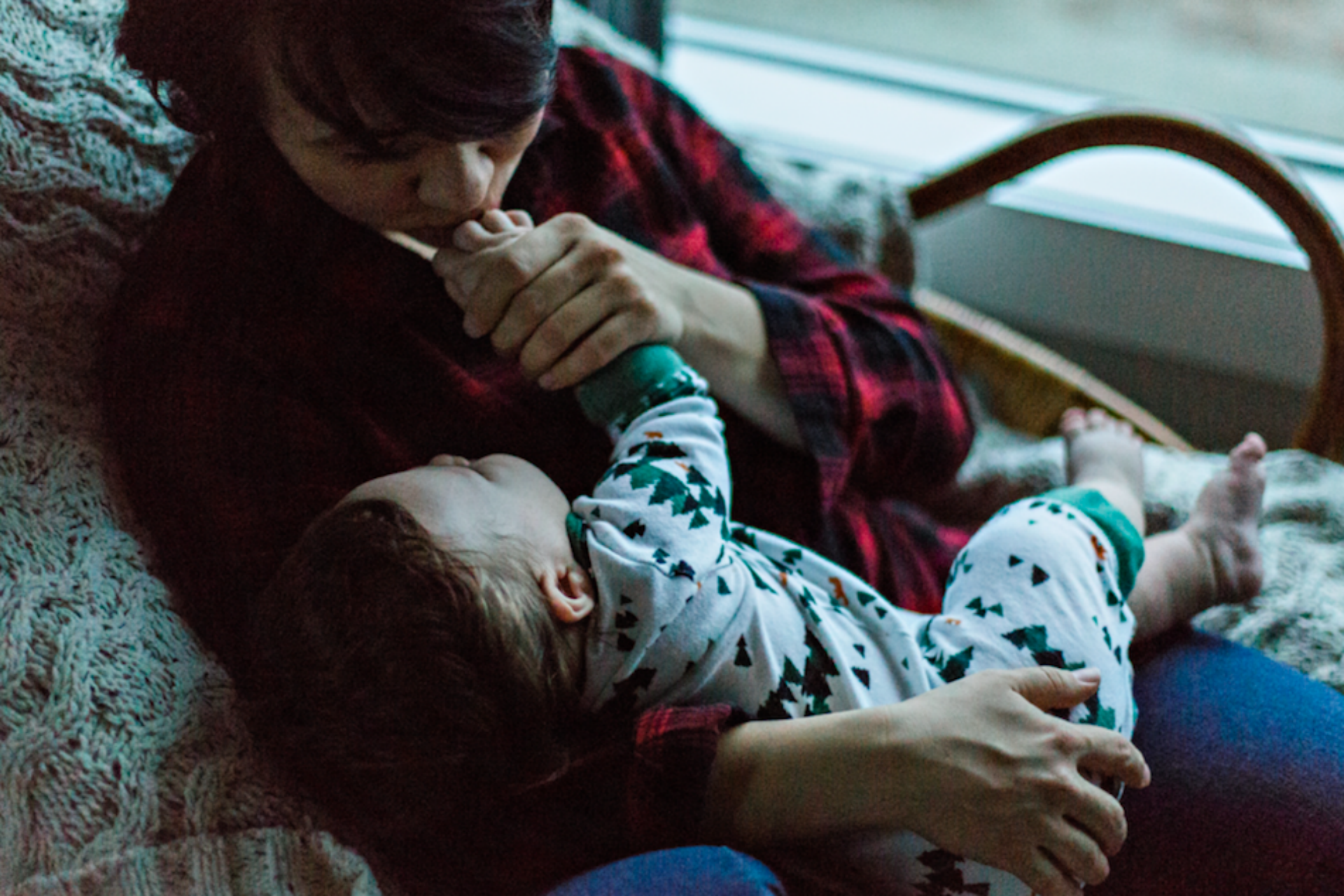0 to 3 Months
4 min Read
Infectious Diseases: Respiratory Syncytial Virus (RSV)

June 4, 2014
0 to 3 Months
4 min Read

June 4, 2014

Respiratory Syncytial Virus, or RSV, is a virus that causes a wide range of symptoms. “In children and adults, it can cause upper respiratory tract symptoms such as cough, runny nose, sore throat and conjunctivitis,” says Dr. Carly Rogenstein, family physician and emergency medicine fellow in Toronto.

“In children, usually less than five years old, the most concerning symptoms are lower respiratory tract symptoms such as wheezing, shortness of breath, apnea (pauses in breathing), and respiratory failure. This infection and subsequent inflammation of the lower airways is often referred to as bronchiolitis.”
RSV is incredibly common, particularly in RSV season: mid-November to March, and starts and ends later in the northern regions of the country. The true incidence of RSV is difficult to quantify, since many RSV infections are self-limiting and do not require medical attention. According to Dr. Rogenstein, it is estimated that all children have been infected with RSV by age two, with multiple reinfections being very common. RSV is also responsible for the majority of 12,000 yearly admissions to hospital in Canada due to bronchiolitis.
But the question isn’t who is susceptible, but who is at risk of complications associated with RSV, since RSV is so widespread. “Complications include shortness of breath, wheezing, dehydration, secondary bacteria infection, and severe complications such as apnea and respiratory failure,” says Dr. Rogenstein. “Young children exposed to second-hand smoke, or those who have a history of asthma are at higher risk of lower respiratory tract symptoms associated with RSV.”
Risk factors for hospitalization and severe complications include prematurity (less than 32 weeks gestation), children with respiratory diseases such as bronchopulmonary dysplasia (BPD), and other congenital respiratory abnormalities, and children with certain congenital heart diseases.
Treatment options vary based on the severity of symptoms. If symptoms are runny nose, mild cough and sore throat, then no treatment is necessary. If RSV causes bronchiolitis symptoms, such as wheezing and shortness of breath, treatment may require bronchodilators (inhaled salbutamol or epinephrine), intravenous fluids to prevent dehydration, short hospitalization and sometimes corticosteroids. “If RSV is associated with severe respiratory distress, respiratory failure and apnea, hospitalization in an intensive care unit with ventilator support may be required,” she says. “In rare and severe circumstances, an antiviral medication called ribavirin may be used.”
There is also an RSV vaccine, called Palivizumab. “Palivizumab is reserved for children at risk of severe complications associated with RSV, such as children less than two years old with severe chronic lung disease, children less than six months during RSV season born premature (less than 32 weeks gestation), and children with certain congenital heart diseases,” says Dr. Rogenstein. “The vaccine is free in Ontario for children who fulfill the ministry criteria.”
The best ways to help prevent RSV infection are good hand hygiene habits, avoiding of cigarette smoke exposure, and limiting exposure to sick contacts.
Emma McNally, an Edmonton mom of three boys (Conor, 16, Ronan, 13 and Tom, 8), shares her experience with RSV:
“Ronan was born at 12:20 a.m. on November 23, 2000. He and I were both home, very healthy and happy by lunchtime the next day.
After we visited a mom and toddler group, Ronan started showing symptoms similar to those of a head cold. After a couple of days he seemed to be getting worse, with his chest sounding wheezy and very mucus-filled.
I went to his family doctor when he threw up his third successive feed. We knew a little baby like him couldn’t tolerate losing so much fluid and dehydration can be deadly in a two-week-old. We were sent to the children’s emergency hospital.
He was admitted right away and stayed on a high dependency ward where he was given oxygen. His oxygen blood saturation levels were very low but he was struggling on. I was expressing breast milk which was then given via a feeding tube, frequently but in tiny amounts because his stomach was so full of mucus.
After two days on the high dependency ward, his condition was actually getting worse. A chest X-ray confirmed that his tiny lungs were close to collapsing. He eventually went into respiratory arrest. He was moved to intensive care – the worst moment of my life.
They revived him and he was kept sedated for 10 days while his little body fought the virus. We were released on New Year’s Eve.
Ronan is now a happy, healthy, handsome soccer playing 13-year-old. He’s had no repercussions or health issues associated with his fight with RSV. He doesn’t even remember it, but I’ll never forget it.”
Originally published in ParentsCanada magazine, June/July 2014.